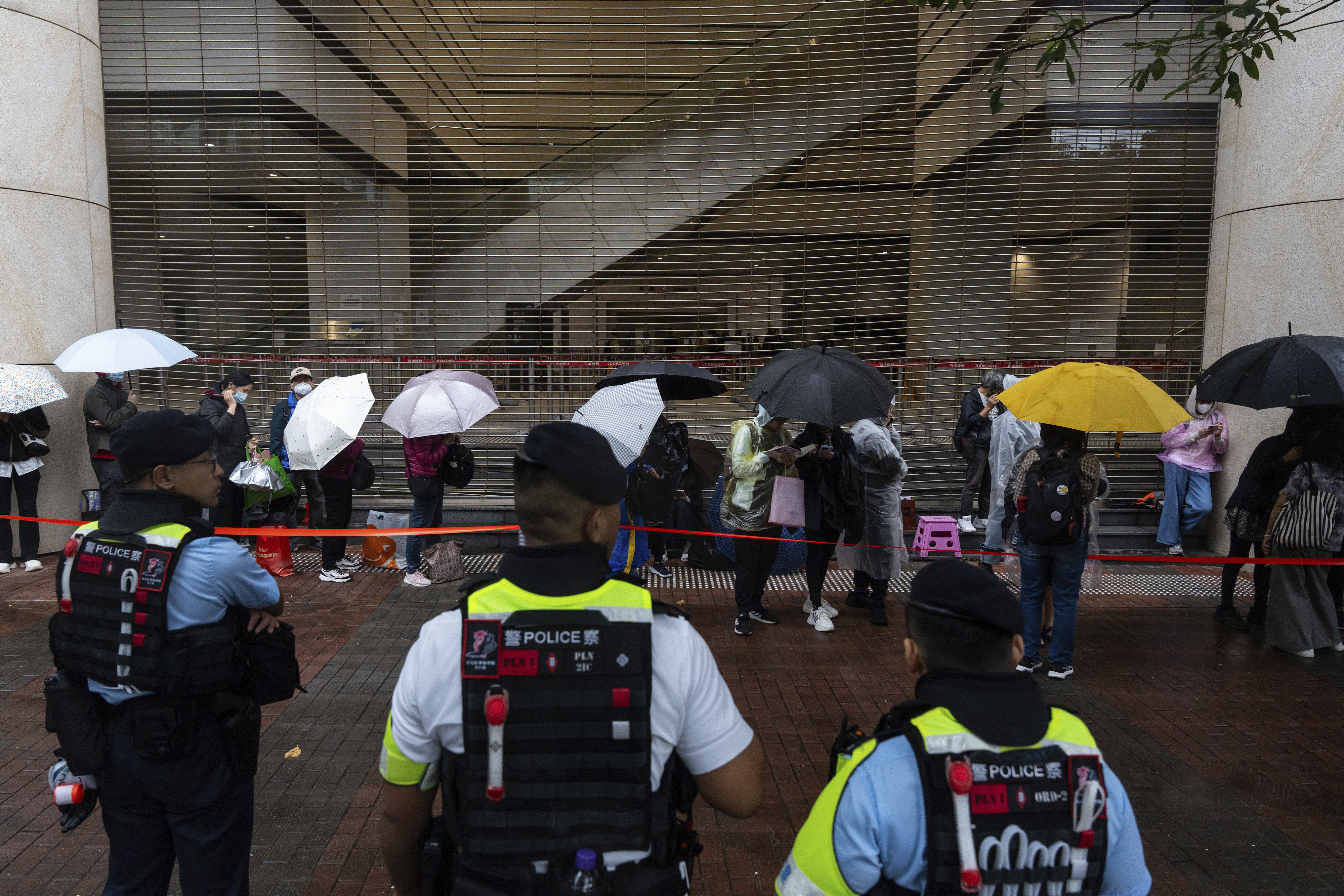Critics of Georgia's new Republican-backed election law issued fresh calls Monday to boycott some of the state’s largest businesses for not speaking out more forcefully against the law, a day after advocacy organizations filed a lawsuit in federal court challenging it.
In a letter to more than 90,000 parishioners, Bishop Reginald Jackson, who presides over more than 400 African Methodist Episcopal churches in Georgia, said the law is “racist and seeks to return us to the days of Jim Crow.”
Jackson is calling for corporate leaders at companies like Coca-Cola and Delta Air Lines to speak out in opposition.
“If we cannot persuade them or if they refuse to oppose this legislation then we will organize and implement a boycott of their companies,” the letter says.
Get top local stories in Connecticut delivered to you every morning. Sign up for NBC Connecticut's News Headlines newsletter.
Coca-Cola said in a statement that the company has been engaged in “advocating for positive change in voting legislation.”
Delta Air Lines issued a statement touting some parts of the law, such as expanded weekend voting, but said “we understand concerns remain over other provisions in the legislation and there continues to be work ahead in this important effort.”
In a separate letter, the children of some of the nation’s most notable civil rights leaders said that far "too many of our lawmakers failed to take a stand and corporations did not go far enough to ensure every voting citizen had fair and equitable access to the most basic of American rights." The letter was written by Bernice A. King, the daughter of the Rev. Martin Luther King Jr.; Al Vivian, the son of the Rev. C.T. Vivian; and John-Miles Lewis, the son of U.S. Rep. John Lewis.
U.S. & World
A lawsuit filed Sunday by organizations including the Georgia NAACP, against Secretary of State Brad Raffensperger and other members of the State Election Board, asks a judge to find that the law violates the U.S. Constitution and the Voting Rights Act and to block state officials from enforcing it.
The complaint argues that Republican “officials have resorted to attempting to suppress the vote of Black voters and other voters of color in order to maintain the tenuous hold that the Republican Party has in Georgia.”
The change to Georgia’s election law was made after Democrats won the presidential contest and two U.S. Senate runoffs in the once reliably red state.
The complaint was filed by the Georgia NAACP, Georgia Coalition for the People’s Agenda, League of Women Voters of Georgia, GALEO Latino Community Development Fund, Common Cause and the Lower Muskogee Creek Tribe.
The new election law was signed Thursday by Republican Gov. Brian Kemp, just hours after it cleared the state legislature. It is part of a tide of GOP-sponsored election bills introduced in states across the country after former President Donald Trump made false claims about election fraud.
The Georgia law adds a photo ID requirement for voting absentee by mail, cuts the amount of time people have to request an absentee ballot and limits where drop boxes can be placed and when they can be accessed. It also bans people from handing out food or water to voters waiting in line and allows the Republican-controlled State Election Board to remove and replace county election officials.
Republicans in Georgia argue that the law is needed to restore voters’ confidence.
“Georgia’s Election Integrity Act that I signed into law expands early voting and secures our vote-by-mail system to protect the integrity of our elections,” Kemp said in a recent tweet. “The Peach State is leading the nation in making it easy to vote and hard to cheat.”
In an interview Monday, Raffensperger said he supported some of the changes but is against other aspects of the law.
Raffensperger said that requiring a photo ID for mail in ballots “is a much superior way of going, because it's an objective measure and not a subjective measure." But he said he does not support provisions that remove him as the chair of the State Election Board and replaces him with an appointee of the state legislature.
A separate lawsuit filed Thursday by the New Georgia Project, Black Voters Matter and Rise Inc. seeks to block the law on similar grounds.
Sen. David Lucas, a Macon Democrat, said Republicans shouldn’t be surprised that two lawsuits have already been filed.
“You did it, you voted for it, and now you’ve got to live with it," Lucas said. "We’re going to spend the whole next year in the courthouse.”
Also Monday, a Democratic lawmaker who was arrested after protesting the law Thursday returned to the state Capitol. Rep. Park Cannon, of Atlanta, was arrested and charged with two felonies after she knocked on the door to Kemp’s office while he was on live television speaking about the voting bill he had just signed.
After Cannon walked with Martin Luther King III in a march around the Capitol, supporters with raised fists formed an aisle for Cannon to walk through to the House chamber. Cannon didn’t respond to questions from reporters as she walked into the chamber.
Republicans, meanwhile, said Cannon was grandstanding. Republican Sen. Randy Robertson said Cannon had ignored warnings and lawmakers needed to stand behind the police and state troopers who guard the Capitol.



